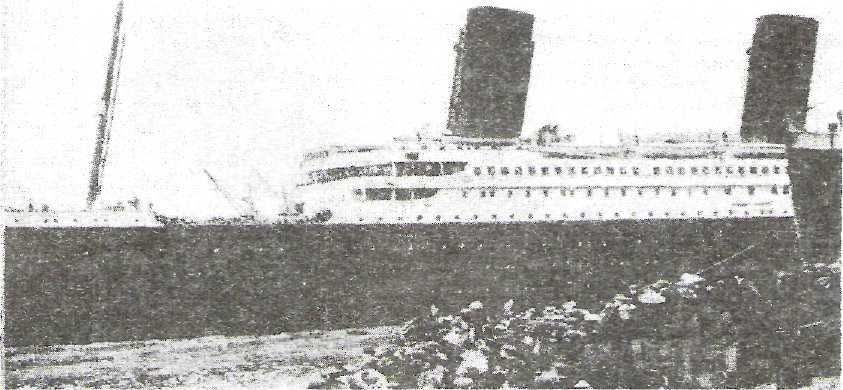
- •Introduction
- •The vulcano vesuvies Chapter 1. Part I
- •Part II
- •The great fire of london Chapter 2. Part I
- •Part II
- •Part III
- •The titanic Chapter 3. Part I
- •Part II
- •Part III
- •Part IV
- •Floods and storms Chapter 4.
- •Part II
- •Part III
- •Part IV
- •Fire in brazil Chapter 5.
- •Bhopal, india Chapter 6. Part I
- •Part II
- •Chernobyl Chapter 7. Past I
- •Part II
- •The challenger disast Chapter 8. Part I
- •Part II
- •The exxon valdez Chapter 9. Part I
- •Part II
- •The kobe earthquake Chapter 10.
- •Conclusion Chapter 11.
Part II
After the fire had started, a strong wind blew the flames towards the west. More and more people panicked, and they all tried to save their valuables.
The fire moved quickly through the old city. The houses were made of wood, and were built very close together in narrow streets. As the fire moved, it destroyed everything in its way. It could not cross the River Thames, but it did reach the buildings beside the river. Ships from many foreign countries stopped here to leave their strange and exciting cargoes. Soon London was smelling of hot peppers and burning brandy! And hot metal was flowing like a river through the streets!
Sir Thomas Bludworth, the Lord Mayor of London, thought that the fire could be put out easily. Later, he tried to organize the fire-fighting, but he gave up the job. It was then that the King and his brother took control of the fire.
King Charles soon realized that the fire was completely out of control He called a meeting of the Privy Council - a group of his special advisers. Together, they decided to make several 'fire posts' in the city, where the firefighters were given everything they needed to fight the fire. King Charles led the fight, and he gave a guinea coin to every helper. (One guinea was worth a bit more than one English pound, which was a lot of money in those days.) He worked for thirty hours without sleep, and he was much loved for his bravery. King Charles and his men decided to clear part of the city by pulling down some houses, so that the fire would have nothing to burn there. This 'fire break' stopped the fire, and by Wednesday, 5th September, it was finally under control.
Part III
We have some very good descriptions of the fire that night. Samuel Pepys was an important man in the government of King Charles, and very day he wrote a diary about his life in London at that time. He wrote that one of the women in his house, Jane, 'called us up about three in the morning. to tell us of a great fire in the City. So I rose ... and went to her window... I thought it far enough off, and so went to bed again to sleep.'
By the time Pepys woke up again, the fire had already burnt three hundred houses in London. He went to King Charles to tell him that the fire was really serious.
The Great Fire of London had several important results. It finally stopped the disease which had killed so many people in 1665. It destroyed eighty-seven churches and about 13,000 wooden houses. The houses were neither safe nor healthy. After the Great Fire, more houses were built of stone or brick, so London became a cleaner and more healthy city.
The Great Fire also destroyed the old St. Paul's Cathedral, so King Charles asked Sir Christopher Wren to plan a new cathedral. In 1675, Sir Christopher finally began the 'new' St. Paul's Cathedral, which still stands in London today.
The titanic Chapter 3. Part I
'Unsinkable!' The safest ship in the world!' 'A palace on water!'
Those were some of the words used to describe the Titanic before she sailed on her first journey, from Southampton in England to New York in the USA on 10th April 1912. She had more than 2,220 people on board.
The Titanic was indeed a special ship. Her rich, first-class passengers enjoyed more luxuries than on almost any other ship before. The furniture and the rooms were like those in a palace. There were libraries, restaurants, dining rooms, reading rooms and a swimming pool on board. And the ship was one of the first to have radio, which was used by Captain Edward Smith and his sailors to keep in contact with land and with other ships. Radio was also used by rich passengers to send messages to their friends!

However, not all the Titanic's passengers were rich. Many second-class and third-class passengers were hoping to start a new, better life in the USA. The third-class passengers had very small rooms deep down in the ship, and they did not enjoy any of the luxuries for which the Titanic was so famous.
